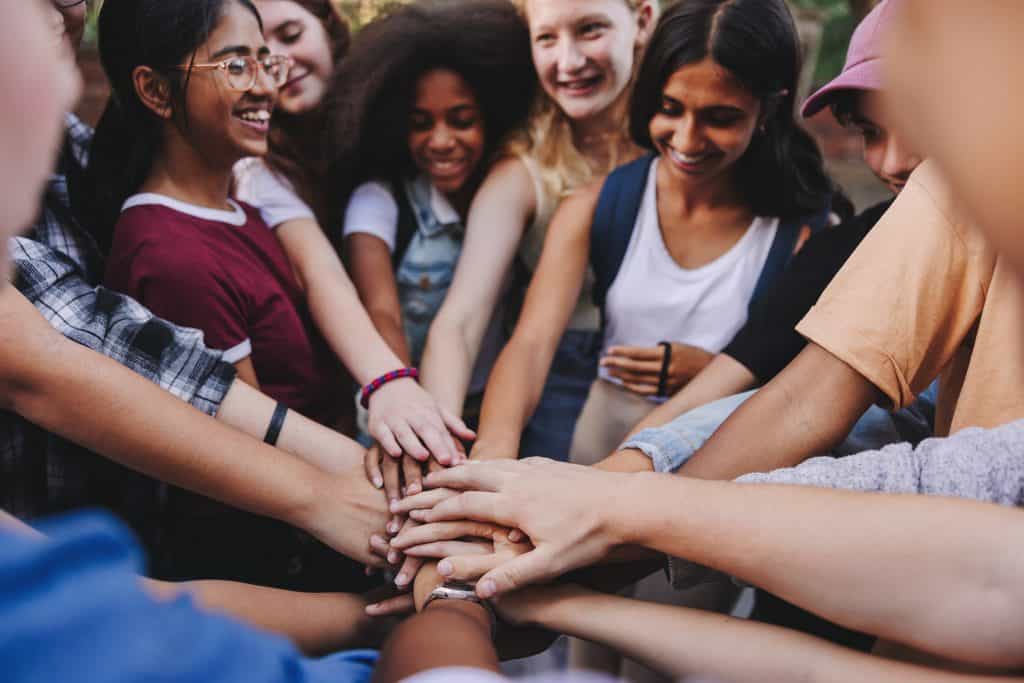Our youth were ready

There is so much grief in our city. Even with the conviction of Chauvin, who murdered Mr. Floyd in our backyard, blocks from one of our clinics, I feel the heaviness of grief inundating me, even more. It is a weird feeling. Empaths work in profound, odd ways sometimes. The feeling that Mr. Floyd was gone and that his children did not have a dad anymore, sunk into me. Accountability helps, and yet, it is not closure. Even considering another perspective, thinking with pain about Derek Chauvin’s mom, was heavy. And I could not shake it.
At first, it was harsh to see the heaviness lifted from some of our leaders. As you can see from a city heavily armed, they were prepared to defend property against human grief, as they were not expecting accountability. Capitalism works in predictive ways.
And yet, as the night sank, I felt that from now on, I could look to my teens’ souls and show them how accountability works for all, affirm their activation, and applaud their activism. Now, they have witnessed there is a light.
It is a historic night in Minneapolis: the first time that police killing of a Black man is held accountable in Minnesota. Professor and Reverend Eddie Glaude Jr. compared this trial to Emmett Till’s trial. The killing of a beloved 14-year-old child. He rests with no accountability yet.
I was lifted through the whole trial by our youth, who were there with Mr. Floyd, providing hope in his last moments. Those youth that, despite witnessing a murder, brought their full presence and pain to the trial.
They defended Mr. Floyd’s humanity against the Defense that tried, unsuccessfully, to create with their words a biased and stereotypical narrative. They destroyed the defense attempts: “Sir, I don’t know if you have seen someone dying in front of you, but that is quite upsetting”; “You are trying to portray me as an angry black man, and I am not going to allow that”; “I spend nights asking Mr. Floyd for forgiveness until I realized that it was not my actions that needed to change, but his (looking to at the officer).”
Those teens made me proud.
During these dark moments, they shone brightly.
Our youth were ready. They knew at that moment that their presence was crucial when Mr. Floyd was not allowed to breathe. And yet, full of unresolved grief, they spoke truth to power when they described how Mr. Floyd died, in the middle of a Minneapolis Summer, for everyone to witness, for our youth, our Minnesota jewel, to denounce.
————–
For Daunte Wright, 20 yo
For Adam Toledo, 13 yo
For Ma’Khia Bryant, 15 yo
—————
Be safe, everyone
Veronica Svetaz, MD, MPH, Family Medicine, Whittier Clinic
More from Dr. Svetaz for medical professionals:
In 2016, I wrote an article for the American Academy of Family Physicians with tips to help teen patients to deal with discrimination. Today I want to share it with you so that you can use it with your teen patients.
Tips to Help Teens Deal with Discrimination
As providers, we are the trusted adults that teens need to have in their lives supporting them and their parents. We need to create a space in our visits to talk about these issues, to help them unload their thoughts, their realizations about power in our society, to help them make sense of this, and to support the ways they can keep leading towards a better, more fair, and more inclusive world. They will keep doing this! They just need to hear us affirming their work and allowing them to articulate their journey with the right narrative (this is trauma-informed care its best!). Let’s embrace the role we have in society and do our part. Let’s help teens to thrive in this society. We should keep pushing change, all at the same time, just as our youth modeled for us in the trial, with them.

